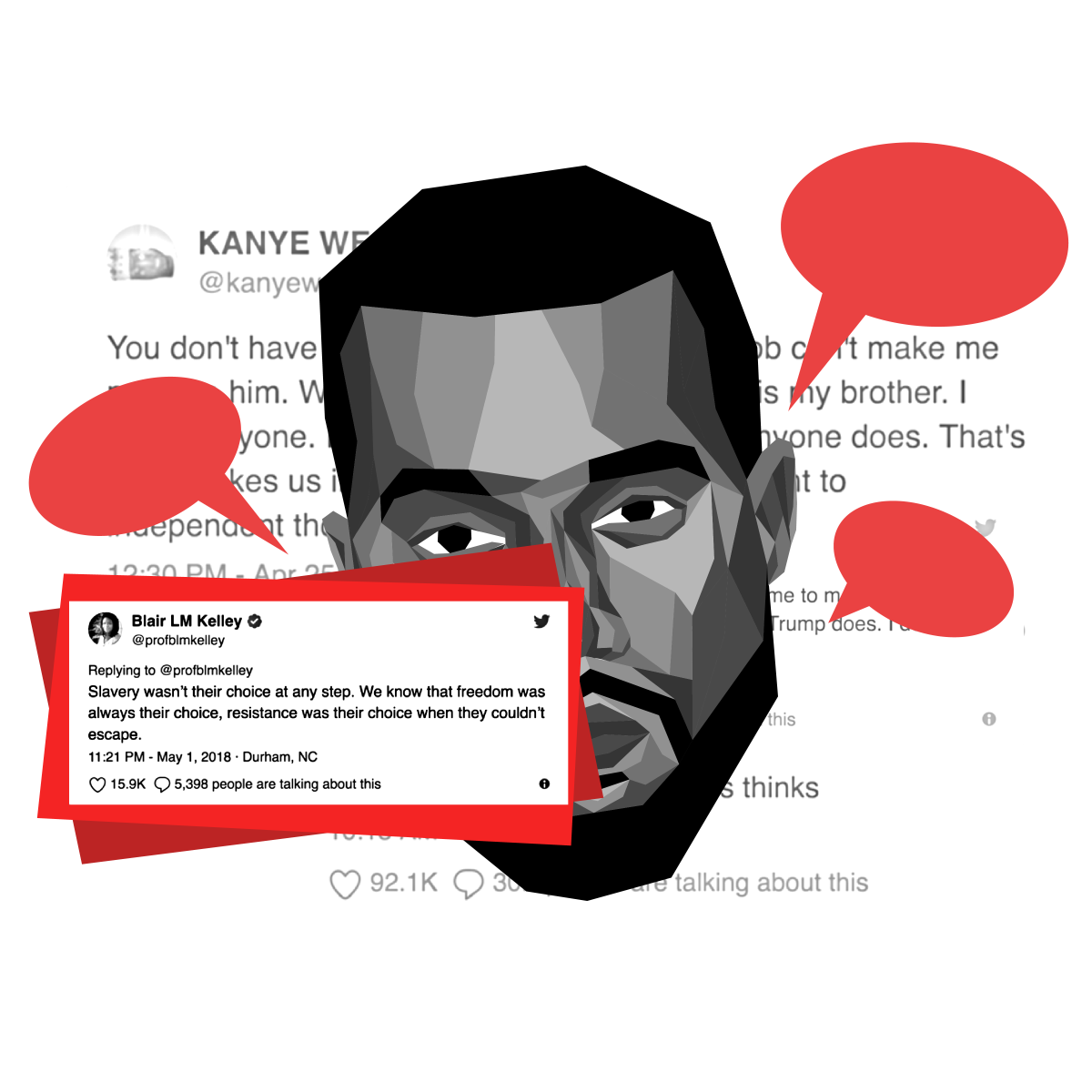A thread of tweets produced by an NC State professor went viral after she responded to Kanye West’s statement regarding slavery being a choice during an interview with TMZ last month.
“When you hear about slavery for 400 years … For 400 years? That sounds like a choice,” West said in his live interview with TMZ.
In response to this, Blair Kelley, associate professor of history and assistant dean of interdisciplinary studies at NC State, posted a thread of tweets that received thousands of likes and retweets.
“I will say, that a milder version of the ‘slavery is a choice’ argument is made by uninformed people all the time,” Kelley stated in her initial tweet on the issue. “I’ve had young men in my courses say ‘They never would have enslaved me.’”
According to Kelley, she is active on Twitter, specifically in response to current events. One of her friends encouraged her to respond to West’s statements.
“To endure slavery was incredible, and people resisted at every turn and did their best to survive and to make lives for their children despite their horrible circumstances,” Kelley said. “It’s not really something to demean or look down on and it’s the culture that Kanye West comes from. Why demean people in the attempt to make yourself look more glorious?”
Keilah Davis, a fourth-year studying physics, said that having someone as famous as Kanye West say slavery “sounds like a choice” is disappointing.
“I think it’s very disappointing coming from anyone’s mouth, a statement like that,” Davis said. “But I guess especially coming from a celebrity, considering the amount of power and influence that they have within popular culture and the minds of the general public.”
Since her tweets have gone viral, Kelley said she has participated in several interviews both local and international. In addition, she wrote an article for The Washington Post elaborating on her original tweet.
Kelley, who teaches topics such as slavery in her classes, felt that she had a responsibility to inform the public with correct information.
“There’s always been shame around slavery,” Kelley said. “But historians have demonstrated that there is nothing to be ashamed of, that there’s a history of resistance; there’s a history of maintaining culture in spite of violence. It’s something that African-Americans survived and should be proud of. I’m not worried about whether or not [West] supports a particular political candidate. For me it’s really about miseducating young people about their past.”
Kelley, who has been on Twitter since 2009, said she sees the social media site as a way to reach others and educate them.
“I’m a public historian and so I’m always interested in making sure that the work that we do in the academy gets shared with interested publics, that people know about how to access history, how to have conversations with historians,” Kelley said. “For me, Twitter is an extension of my work as a public historian to make sure that we’re having conversations with people about our past.”
Davis also said that she appreciates how Kelley uses an accessible platform like Twitter as a platform to advocate for for the public.
“I think it reminds students, especially black students at NC State, that there are professors who care about more than just their research and more than just how many grants they are getting and more than just their job description,” Davis said. “They’re willing to go above and beyond that and use whatever platforms that they have to advocate for issues that are relevant to students’ lives.”
Kelley also said that her ancestors came to America as slaves and this is something that she takes pride in.
“I’m not ashamed of who I am as an African-American woman,” Kelley said. “I’m not ashamed of my ancestors. I’m an American and I come to America from a different kind of story- it’s not an immigrant story, it’s a slave story.”
Kelley said that those who had ancestors who were enslaved should take pride in the fact that they survived and of the cultural development that came about through slavery.
“I think it’s important to not be ashamed of those 400 years, to know it was a tremendous economic system that came down on the heads of people and they survived it,” Kelley said “Not only did they survive, they began in the midst of it to make a new culture. That culture gave us the blues and jazz and R&B and hip hop. Kanye is part of that legacy of survival.”








